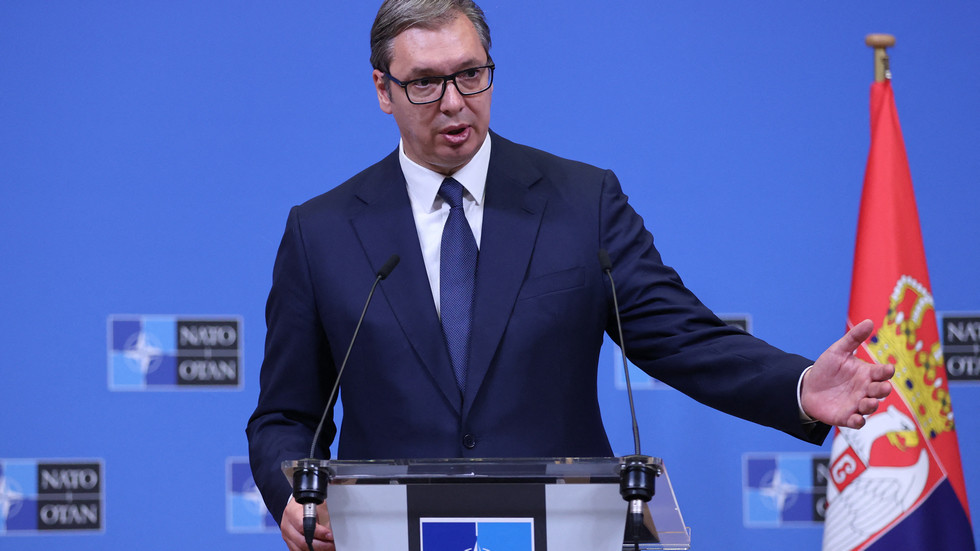NATO’s peacekeeping force in Kosovo should “
do their job” in protecting the Serb minority, or Belgrade will do it unilaterally, Serbian President Aleksandar Vucic said on Sunday.
Vucic held a televised press conference after meeting a delegation of Kosovo Serbs, several days after the EU-brokered talks between Serbian and Kosovo leaders collapsed.
The crux of the dispute between the Balkan nation and its breakaway province is Kosovo’s push to declare Serbian identity documents and vehicle license plates invalid on its territory. As a result, tensions flared up in late July, with ethnic Serbs in northern Kosovo blocking roads and erecting barricades. After EU intervention, Kosovo agreed to postpone the measures until September 1.
“We have nowhere to go, we are cornered. We will save our people from persecution and pogroms, if NATO does not want to do it.”
Though Serbia and Kosovo are supposed to resume talks later this month, Vucic was not optimistic about defusing the crisis, arguing that the authorities in Pristina have rejected all “
compromise solutions.”
“
We shall seek a compromise in the next 10 days but I fear that the Rubicon has been crossed long ago,” he emphasized, accusing Kosovo of seeking “
to finally remove the Serbian people” from the breakaway province, a statement that has been repeatedly denied by Pristina.
The Serbian president also criticized NATO for ramping up its presence in northern Kosovo, where about a half of all the local Serbs live. According to earlier media reports, the NATO-led Kosovo Force (KFOR) deployed a significant number of troops to two checkpoints at the border between Serbia and Kosovo, vowing to intervene if necessary. As of now, about 3,600 NATO troops are stationed in Kosovo.
Kosovo declared independence in 2008. However, Serbia, along with Russia and China, refused to recognize it. Moscow has accused the West of fueling the conflict between Belgrade and Pristina and pressuring Serbia to adopt anti-Russian sanctions supported by the EU. Kosovo blamed Russia for the escalation by claiming Moscow is seeking to distract international attention from its military offensive in Ukraine.
NATO should protect Kosovo’s Serbs, or Serbia will do it itself, according to the Serbian president

www.rt.com


